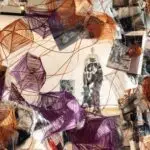A motion aimed at enhancing Los Angeles’ response to toxic algal blooms and updating protocols for assisting marine mammals stranded due to this natural phenomenon was approved by a Los Angeles City Council committee on Wednesday. The Neighborhood and Community Enrichment Committee, in a 2-0 vote, advanced the motion introduced by Councilwoman Traci Park, who represents the coastal West L.A. neighborhoods in the 11th District. The motion is a response to the 2023 toxic algae bloom that affected over 1,000 marine animals along the Southern California coast, leading to sickness or death.
Councilman John Lee, a committee member, was absent during the voting process. Park’s motion was prompted by the need to address the impacts of the widespread toxic algae bloom and to take steps to care for marine animals affected by it. The motion highlights the efforts made by Park, L.A. County officials, and John Warner, CEO of the Marine Mammal Care Center in San Pedro, during a news conference last June. The Marine Mammal Care Center is a nonprofit organization providing year-round care, food, and shelter for marine mammals.
Toxic marine algae, known as pseudo-nitzschia, causes the algal blooms typically seen in the summer, producing a neurotoxin called domoic acid. This toxin predominantly affects marine animals like sea lions and dolphins, damaging their brains and causing lethargy, disorientation, and, in some cases, death. Sea lions, due to their foraging habits involving shellfish that consume the toxic algae, are particularly vulnerable. While sea lions can recover within 72 hours with treatment, some may suffer lasting brain damage, including memory loss.
During the 2023 algae bloom, the Marine Mammal Care Center received over 1,000 calls within a two-week period in June, reporting animals displaying symptoms of domoic acid poisoning. The motion seeks to allocate resources to strengthen the city’s response and support the Marine Mammal Care Center in handling future algae blooms. Recognizing algal blooms as a natural phenomenon linked to climate change, the motion emphasizes the potential for future occurrences due to rising ocean temperatures and acidification. The full L.A. City Council will consider the motion at a future meeting.






